


















Alicia Bata
to share your concerns, questions or news tips, contact UV editor Kelly Hagen by e-mail at
Dear North Dakota United members!
I don’t know about you, but this year is flying by. It didn’t hurt that we had a touch of summer in late January and early February. That said, we still have miles to go before we rest! Here’s what’s up at North Dakota United:
■ Mark your calendars! The ND United Annual Delegate Assembly will be held on Saturday, April 20, 2024, at the new Gateway to Science Center in Bismarck. Every local association is guaranteed at least one delegate. I have sent all the details to your local president, so please check with them for the details or drop me a note, and I’ll see that you receive the information you need. As I write this, I have confirmed that NEA Vice President Princess Moss will give a keynote. In addition, we have invited other interesting folks to join us. It will be great to see you there!
■ As you know, these are challenging times for all public employees. Whether you are a K-12 teacher, university faculty or staff, an education support professional, or are employed in any agency providing vital public services, there is no shortage of things on the horizon that we have to keep our eyes on. The most troubling is the proposed constitutional measure to eliminate the collection of property taxes in ND. While no one loves paying property taxes, they remain the best method of ensuring that local residents
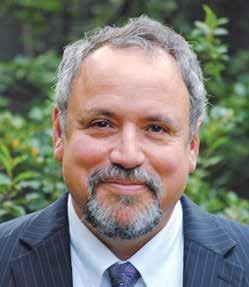
get the services they need while maintaining control of their budgets. If this measure passes, political subdivisions, including school districts, cities, counties, and others will be forced to go to Bismarck every two years and beg the Legislature for what they need to provide police and fire protection, safe streets, and great public schools. ND United is leading the way to stop this measure and you can help!
Scan this QR code to Decline to Sign the property tax measure petition.

■ Governor Burgum’s Recruitment and Retention Task Force is in full swing, gathering the data it needs to make recommendations that will end the teacher shortage in North Dakota. We are hopeful that the recommendations will include amplifying teacher voice, improving salaries, staffing, and working conditions, developing meaningful, less onerous pathways to licensure, and relying on accurate data when making decisions about recruitment and retention. No other state has ended its teacher shortage. We can if we act boldly now!
■ Finally, thank you all so much for the terrific work you do day in and day out that makes North Dakota a wonderful place to live and work. And thank you for your membership in ND United!

North Dakota United Scholarships and Grants are available to North Dakota United members, including Student NDU and NDU-Retired members, as well as the dependents of all members. All scholarship applications are currently open and are due March 31, 2024. Application information can be found at NDUnited.org/Foundation.
In 2023, the NDU Foundation announced that 40 North Dakota United members and dependents had been selected to receive more than $60,000 total in scholarships and grants.
Scholarship and grants categories include:
Undergraduate Scholarships – Any field of study: North Dakota United Member/Dependent Scholarship; ND United Foundation Ethnic Minority Scholarship
Undergraduate Scholarships –Education degree: ND United Education Scholarship; Mary Cripps
Special Education Scholarship; Howard Loftesnes Memorial Education Scholarship; Bill Oban Special Education Scholarship; Fern Pokorny Education Scholarship; Cindy & Gary Rath Education Scholarship; Les Snavely Memorial Education Scholarship; Harris & Arlyce Widmer Family Business Education Scholarship
Graduate Scholarships: Ron & Ann Anstrom Scholarship; Mary Cripps Special Education Scholarship; Halstenson Family Music Scholarship Fund; Horace Mann ND Agents Graduate Education Scholarship; Howard Loftesnes Memorial Education Scholarship; Bill Oban Special Education Scholarship; Harris & Arlyce Widmer Family Business Education Scholarship
Grants: NDU Fine Arts Grant; Holland Family Experiential Learning Grant; Joseph A. Westby Leadership Award; NDU Workplace Innovation Grant
Scan to apply for 2024 NDU Foundation Scholarships and Grants

Members of North Dakota United are frequently in the news, both locally and statewide, and sometimes even nationally. We will be featuring some of their quotes in each edition of United Voices.
— Monica Klein, kindergarten teacher at Lakewood Elementary School in Mandan and president of the Mandan Education Association, in a story by the North Dakota Monitor about the formation of the Teacher Retention and Recruitment Task Force..This story, “North Dakota educators hopeful teacher retention task force sparks fixes,” was published at www.northdakotamonitor.com on Feb. 1, 2023. We’ve also excerpted this story on p. 8-9 of this issue of United Voices.
“There are just lots of hats that teachers wear, and I think sometimes those hats definitely can get heavy. And that’s where we’re seeing the teacher burnout.”
As a member of North Dakota United, you already know that you have the power of having the 11,000+ members of our union watching your back and protecting you from things like unfair retaliation and dismissal. Opponents of public education and public services wish to deny you of that protection by attacking our union and shrinking membership. One of the ways they do this is by eliminating our members’ ability to pay through automatic dues deduction.
It’s incredibly easy to protect your membership in ND United by enrolling in AutoPay. The process is a one-time change you can do online. After you’ve switched, your membership is safe from those who seek to weaken our union, reduce our bargaining power, and lower pay and benefits for all public workers.
You can easily switch over your dues payment method online by visiting bit.ly/NDUedues, or simply scan the QR code below. You will need to have your Membership ID number available to make this change. You can find your individual member ID printed on the mailing label of this issue of United Voices.
Scan to switch your dues payment method to ACH

We are planning to host an Advocacy Conference in August 2024. The conference will be a place for us to build skills, meet member leaders from around the state, and prepare for the political challenges that lie ahead. We will be convening a planning committee for this conference and would love to have member involvement in the process. Here’s what the commitment would entail:
■ Joining two to three planning
calls to bring content ideas for training, proposals for sections you would like to lead, and general discussion of how the event should run.
■ Helping to build the plan to get members to attend the training.
If you are interested in joining this committee, please email sarah. grossbauer@ndunited.org and we will be in touch.
to NDU members
School boards across North Dakota serve as the governing body for our school districts. School boards play large roles in student outcomes and have impactful influence over educator working conditions.
There is typically scarce information shared publicly regarding the views of those running in a school board election. Most eligible voters know very little about the candidates, resulting in low turnout at the polls. In an effort to assist all of our locals and chapters in their efforts to get the word out to members and supporters of great public education, ND United has produced a member-exclusive School Board Election Handbook. This handbook is designed to help your local association get involved in school board elections. It provides an organized approach to help your local understand the purpose and structure of school boards in North Dakota, set up a candidate screening and recommendation process, organize Get Out the Vote (GOTV) events, and develop a school board election plan. You can find and download this School Board Election Handbook in the For Members section of our website, at bit.ly/ndu-sb-handbook. Since this resource is available only to members of ND United, you will need to log in.
If you have not already signed up for access, go to www.ndunited.org/user/ register with your first and last name, member ID (which is printed on the mailing label of United Voices) and an email address.
While most of a Mandan kindergarten class was outside enjoying activities, their teacher was inside explaining to a student how their decisions to bother a classmate could lead to unsafe behavior.
Eventually, three classroom assistants led the students back inside to clean their room before they continued their reading lesson.
Kindergarten teacher Monica Klein said teachers don’t always have classroom assistants or time to offer guidance to students who may be dealing with problems at home or struggling socially.
“There are just lots of hats that teachers wear and I think sometimes those hats definitely can get heavy,” said Klein, who teaches at Mandan’s Lakewood Elementary. “And that’s where we’re seeing the teacher burnout.”
In response to a statewide teacher shortage, Gov. Doug Burgum announced in September the creation of the Teacher Retention and Recruitment Task Force, which is aimed at reducing educator turnover and identifying policies to reduce strain on educators and facilities.


The 15-person task force is made up of educators, school board members, superintendents, principals and state lawmakers who will meet this year and present recommendations to Burgum and the state superintendent at the end of September.
Klein, who also is president of the Mandan Education Association, said teachers in Mandan have needed to adjust their way of educating students multiple times since she began teaching in the district 10 years ago.
“I’ve seen us really persevere and have a lot of grit to get through some really tough times, like COVID, and some higher class sizes as we were doing some building here in Mandan,” Klein said.
She also said “outside community challenges” like mental health, family finances and child care can all have an effect on students in the classroom.
“We’ll have some more behavioral issues,” Klein said. “You are wearing multiple hats as a teacher where you are not only teaching, but you are also stepping into the role of helping them through things emotionally. You are also stepping into the role to help them and their families find the
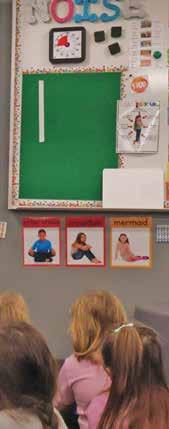
resources that they need in order to be at a level to learn when they are at school.”
Klein said she believes she’s fortunate to work for Mandan Public Schools, but she’s also heard different stories from her colleagues across the state.
“A lot of people will leave kindergarten to go teach upper elementary grades, or be done completely, because it’s a lot of taking care of the kids before you can teach them the curriculum,” she said.
Klein added that if K-12 districts don’t have the funding they need, they can’t offer adequate salaries or hire enough support staff.
Another major point of concern for teachers, she said, is legislation proposed that can be negative or hurtful to teachers. She cited discussion last session involving vouchers for private schools as an example.
“We have a lot of questioning content, really questioning our professionalism and what we teach in the classroom,” Klein said. “As a profession, we are very transparent about what our curriculum is, what we teach and the methods that we use.”
Nick Archuleta, president of North Dakota United, the union that represents K-12 educators and other public employees, agreed with Klein and said political discourse surrounding education has been detrimental to educator morale.
“Some folks were calling teachers ‘groomers’ for example,” Archuleta said. “Those kinds of discussions around public education have an impact on how teachers feel about the job they are doing and make them question whether they have the support of the public.”
He said the impact of that political discourse is compounded because it hinders the recruitment of new teachers to the career field.
“Teachers don’t go into education because they want to be part of a political scrum,” Archuleta said. “They go in there because they want to make sure students have the very best opportunities they possibly can to be successful. Not just in school, but in their lives after school.”
He also said salaries needed to be addressed, if education is to remain a viable career option.
According to the National Education Association, national teacher pay has not kept pace with rising inflation over the last decade. In fact, the organization reports real teacher earnings, after inflation, are about $2,000 less per year than they were 10 years ago.
“We are also not doing enough to retain those teachers,” he said.
In August, Burgum approved a rule change from the North Dakota Education Standards and Practices Board to alleviate educator shortages that allowed student teachers who had completed their coursework to serve as the “teacher of record” while they complete a semester-long internship, a move opposed by ND United. The rule change expires on June 30, 2025.
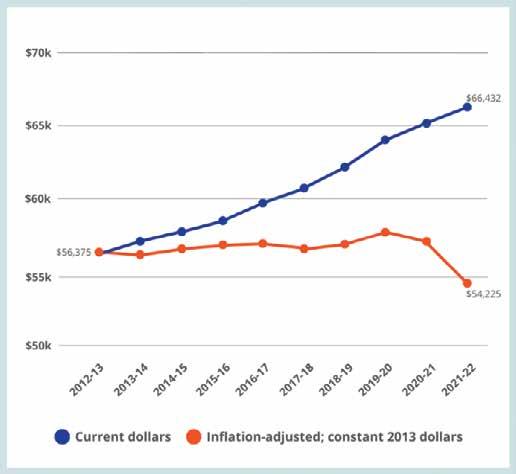
One may not like the data, but you cannot ignore it. When asked the question of how severe the issue of teacher retention is in the state of North Dakota, almost nine in ten (88 percent) of our state’s educators say it is a major issue. In the last 22 months (about two years), North Dakota United has been tracking this question, and the data clearly shows the issue is not going away.
The latest survey was conducted between Nov. 7-14, 2023, via an online platform where North Dakota United and the North Dakota Department of Public Instruction contacted educators
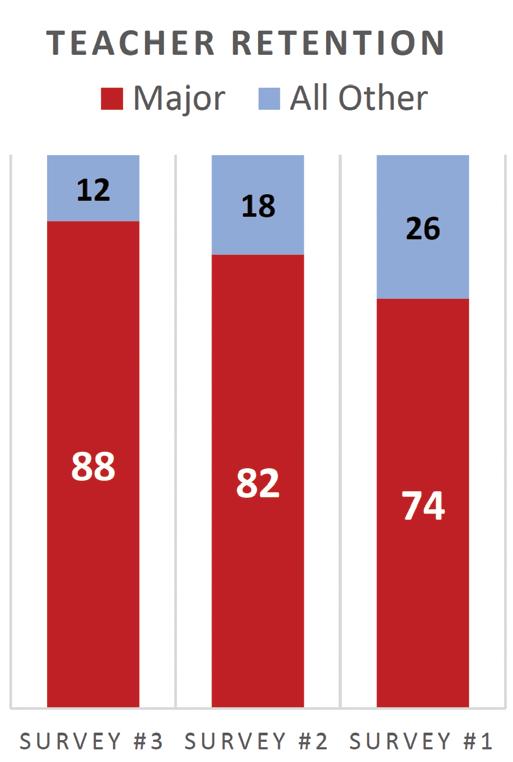
via email and text. In total, 1,098 North Dakota educators completed the survey; results are weighted by gender, age, region and building type to ensure results are reflective of the North Dakota education community. The margin of error is plus or minus 2.8 percentage points.
Two questions clearly demonstrate the mindset of North Dakota educators and teacher retention. In question 13, we find 93 percent of respondents say that when they were first hired, their plan was to stay in the profession and retire from it. When asked about today, just 40 percent say they are most likely to retire in the education profession. The 50-percentage point decline reinforces that teacher retention is indeed a major issue.
The crosstabs on age show the issue is even more dire. Only one in five (19 percent) of educators under the age 30 and one in four (24 percent) between the ages of 30-39 say they plan to retire in the education field. This decline is in
stark contrast to the same young respondents who said that when they entered the profession, they planned to retire from it (85 and 94 percent respectively).
This dramatic decline is not a rural or urban issue, but a statewide issue. Region, gender and building type did not show much variance, as demonstrated by the age of the respondents.
Question after question in the survey (no matter how asked or framed) show a significant share of current North Dakota educators actively considering leaving the education profession. And in the eyes of educators, there has been zero progress the last two years; if anything, not seriously addressing the problem has solidified their views about leaving the profession.
Identifying a problem is easy; the latest survey of North Dakota educators clearly demonstrates teacher retention is a major problem, and it is not going away. Solutions are harder. In the eyes of the respondents, the solution is simple: higher wages that reflect their professional commitment, and more direct and tangible support from district administrators and elected officials.
The data shows North Dakota educators are looking for bold solutions to keep educators in the profession, not nibbling around policy edges. This is demonstrated by comparing intensity levels for student-loan forgiveness versus higher wages. When isolating educators under age 40, we see only about a +20 margin between the two intensity levels of “very important” and “not important” when it comes to student loan forgiveness, compared to the overwhelming +75 margin on higher wages.
The disparity between the two is even more evident when educators were asked what the “most important” factor to keep educators in the profession. Almost half (46 percent) of all respondents said higher wages were most important, compared to just 2 percent saying student-loan forgiveness.
Educators also want direct support from administrators and elected officials. Although higher wages were the most important factor by a large margin, coming in second at 19 percent (and the only option besides higher wages in double digits) was support from administrators.
And support from administrators has the strongest intensity of any of the factors to keep educators in the profession, including wages; 80 percent said this was a “very important” factor. This number is consistent with all age groups and other key demographics. Support from legislators was at 67 percent “very important,” the third highest of the seven factors measured.
Compounding the problem, educators do not feel like district administrators, school boards and elected officials respect their opinions and experience. The question 18 and 19 series of the topline show widespread feelings on this lack of respect – 78 percent of educators feel elected officials do not respect their opinions and 75 percent feel they do not respect their experience. It should be noted educators differentiate between building administrators and district administrators when it comes to respect; 78 percent of educators say building administrators respect their experience, while only 53 percent say district administrators respect their experience.

No matter what size the school, students can find themselves feeling incredibly lonely. Especially at the middle school and high school levels, when kids are first figuring out who they are as people, the little differences we all have from each other can build gigantic walls between our children.
Educators dedicate their lives to breaking down the walls that exist between students. They know that children who are allowed to be exactly who they are and receive the fullthroated support and acceptance of their peers for doing so, are the ones who will go the farthest in life.
One program that is growing in prominence, both in North Dakota and nationally, is called Peer to Peer. The American School Counselor Association has taken the position that “peer support programs help students develop an improved sense of well-being, social confidence and health behaviors.” Additionally, the group defines peer support programs on its website as “peer-to-peer interaction in which individuals who are of
approximately the same age take on a helping role, assisting students who may share related values, experiences and lifestyles.”
Roughly two years ago, the principal of Wachter Middle School in Bismarck, Lee Ziegler, approached his school’s physical education teacher, Sheila Peterson, with an idea of implementing a Peer to Peer program.
With her administrator’s blessing and support, Peterson started building Wachter’s program by consulting some local experts. Primarily, she reached out to Sara Bohrer, a special education teacher at Century High School in Bismarck. Bohrer started what was probably the first Peer to Peer program in this area at Century in 2015.
“I worked with Sara Bohrer, and … she had a syllabus, and so she shared that with us,” Peterson said. “And one of the biggest things was, if not, why not? And then, show up and keep showing up. When you get kids to think about those things, if not, why not? If this person can’t do this, why not? How do we help them? And then, hey, I’m going to take that uncomfortableness and anxiousness that you might have, and I’m going to tell you, I’m going to show up for you. I’m going to be your friend. You don’t have to work for it.”
Peterson recently worked with Peer to Peer program advisors from Simle and Horizon Middle Schools in Bismarck to plan an “I Hate Winter Party” for students from all three schools to get together and participate in activities together. The event was hosted at Simle on Wednesday, Feb. 21, and Peer to Peer participants from the three schools together did things like hula hoop, play volleyball and other sports in the gym, arts and crafts, play board games, and ate cookies and ice cream.
Tami Doppler, a physical education teacher and the Peer to Peer coordinator at Horizon, said that her school had offered their program for students the last five years, but this year was her first year teaching and leading P2P.
“I think we have 20 mentors and 25 mentees,” Doppler said. “We do two days there in the gym for one class period, and two of the days they’re doing daily living in the special education area.
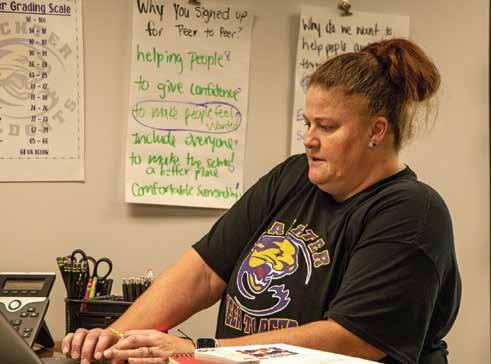


TOP: 2024 North Dakota Teacher of the Year Sheila Peterson works at a desk at Wachter Middle School in Bismarck.
MIDDLE: Peterson teaching her Peer to Peer students in the classroom at Wachter.
BOTTOM: Cookies and other treats were available for Peer to Peer students at an event in Simle Middle School in Bismarck.
Continued on next page.
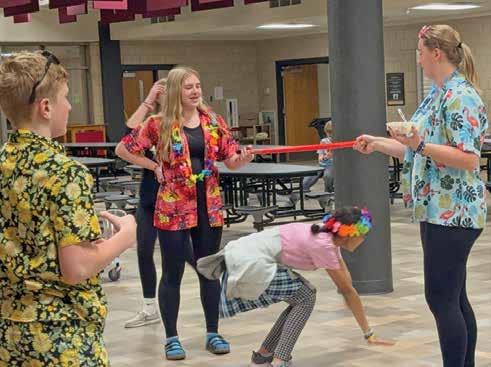
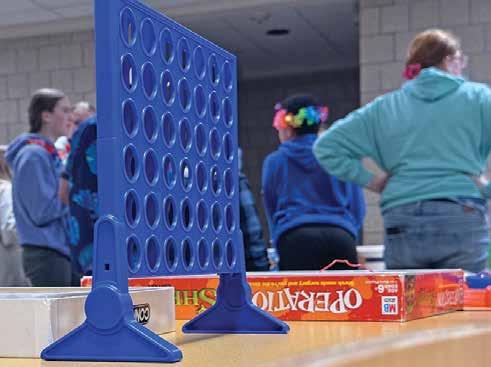
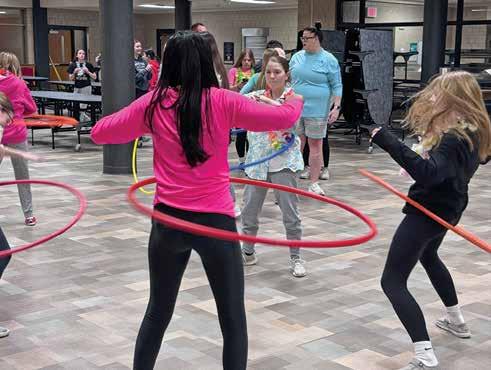
TOP: Peer to Peer students limbo at an “I Hate Winter Party” event at Simle Middle School.
MIDDLE: Board games were set up at the Simle event.
BOTTOM: Students hula-hoop together at the Peer to Peer event.
… I kind of like that model of being in the gym. The mentors or the mentees come into the gym together and do physical activity things, or they go into the special ed area and do daily living stuff.”
Two students from Wachter, Grace Peterson and Nya Davis, talked at the winter party about their experiences with the Peer to Peer program. Grace, a seventh-grader, said she first heard about Peer to Peer during the summer school program and thought it sounded like fun. “Yeah, I just heard about it through my teachers and my friends, and I was excited because I never did anything like this before. … It’s just been really fun making new friends and getting to do things.”
For Nya, an eighth-grader at Wachter, she admits to being less interested in Peer to Peer when she first heard about it last year. “I was in seventh grade, and we had some mentors come into our class, and it didn’t seem that fun because they were just sitting in class. But then, this year when I heard about it, and heard about the stuff we do, like field trips, it sounded like way more fun, and I applied.”
Both students listed out activities such as going bowling together, to the zoo and amusement park as highlights of being involved in Peer to Peer. And they both expressed their appreciation for having Mrs. Peterson as their advisor. “She is very motivating,” Grace said. “And, like, really upbeat,” Nya added.
School boards across North Dakota make crucial decisions that have a huge impact on the education of our pre-K to grade 12 students and the working conditions of school employees. These decisions include, but are not limited to: choosing the vision for your school district, hiring and evaluating the superintendent, setting policy, and approving curriculum. Also, keep in mind - it is your tax contributions that fund local schools.
Given these important factors, it behooves all of us to stay involved in our school board elections at the local level. Unfortunately, voter turnout at many school board elections across the state is very low. This is most likely because these elections are not well advertised and most patrons do not have a personal relationship with any of the candidates. Many voters are reluctant to participate in an election in which they do not know the candidates or their views.
North Dakota United is constantly working to amplify local school board elections and assure that pro-education candidates are elected. We do this through our UPAC (United Political Action Campaign) fund, which will engage in school board races for the first time this year. While school board elections and candidates are non-partisan, issues and decisions made by our school boards are becoming much more politicized than in the past. Your involvement is the best way to assure that your views and beliefs are represented within your local school district.
To that end, UPAC has developed a handbook to assist local education associations in promoting proeducation school board candidates. Some GOTV (Get Out the Vote) activities include candidate screening tools and a recommendation process. Research proves that a super majority of citizens respect and trust educators and other school employees and would respond favorably to their recommendations.
If you would like to be involved in the effort to elect pro-education candidates for school boards across the state, one of the easiest ways is to support UPAC financially. Your contribution, and the contributions of fellow ND United members, is pooled and distributed to candidates that have gone through a rigorous process to earn the endorsement of members like you in local education associations across the state. Your contribution does not qualify for a tax deduction, but it is imperative that we work together to support our local pro-education candidates for school board. At the close of this article is a QR code to facilitate your contribution.
Martin Luther King once said, “Our lives begin to end the day we become silent about things that matter.” Let us not be silent! Rather, let us be a voice for pro-education school board candidates across the state.
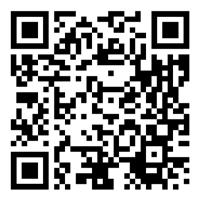
When adding up all that Bowbells educator Cyle Golde does for his community, you will find the sum of his service is greater than its individual parts.
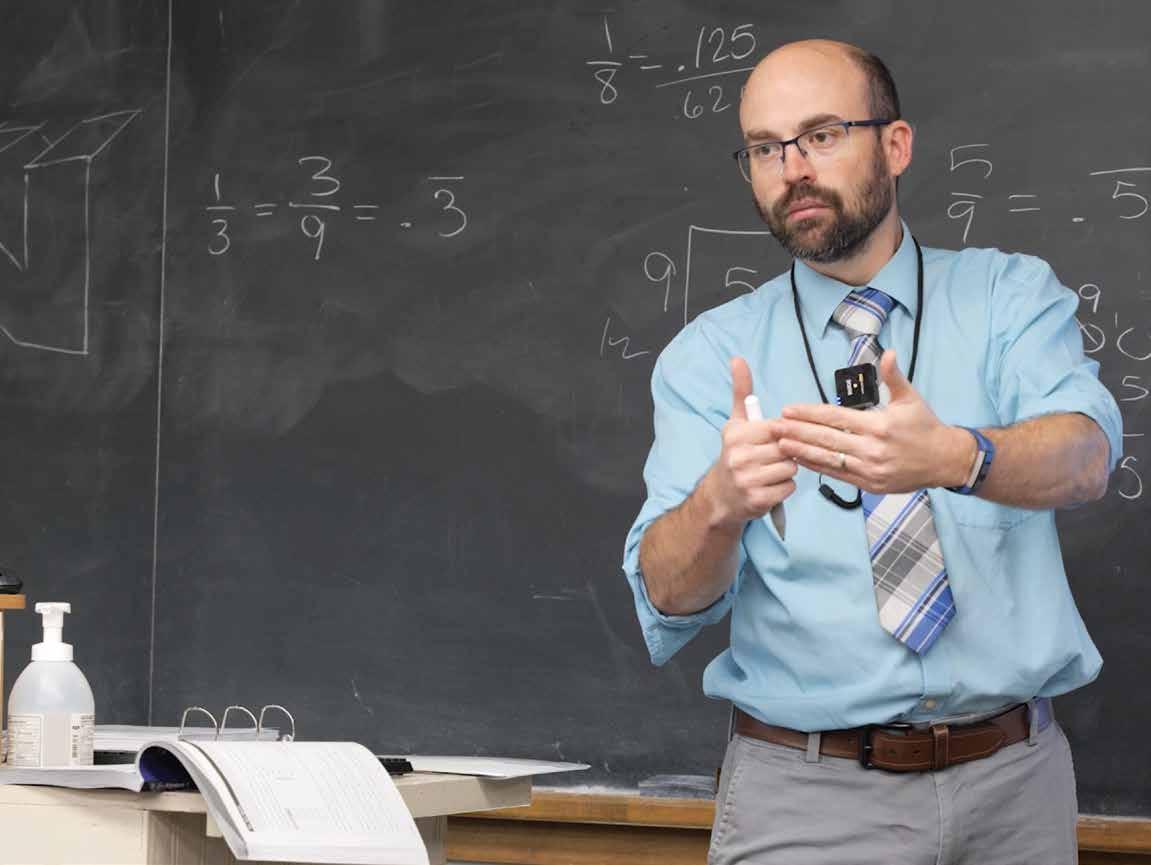 By Joel Crane, joel.crane@ndunited.org
By Joel Crane, joel.crane@ndunited.org
How did you use math today? For some, that’s an easy question to answer.
“In about ten minutes, I get to go do calculus,” said Cambry Ankenbauer, a senior at Bowbells High School.
There are also those who are on the other side of that equation. For Cyle Golde, the math teacher at Bowbells High School and North Dakota United member, math goes beyond the classroom.
“Let’s see if I can remember them all,” Golde said. “OK,
I’m the math teacher, I’m the tech coordinator, I’m the secretary-treasurer on the fire department, driver on the ambulance, I manage the pool during the summer, I’m the president of the Bowbells Education Association, I am a bus driver. Oh, another one, I forgot PTO. I’m the vice president of the PTO.”
Cyle’s many uses of math make him like so many other
Scan this code for more photos & video of this story.

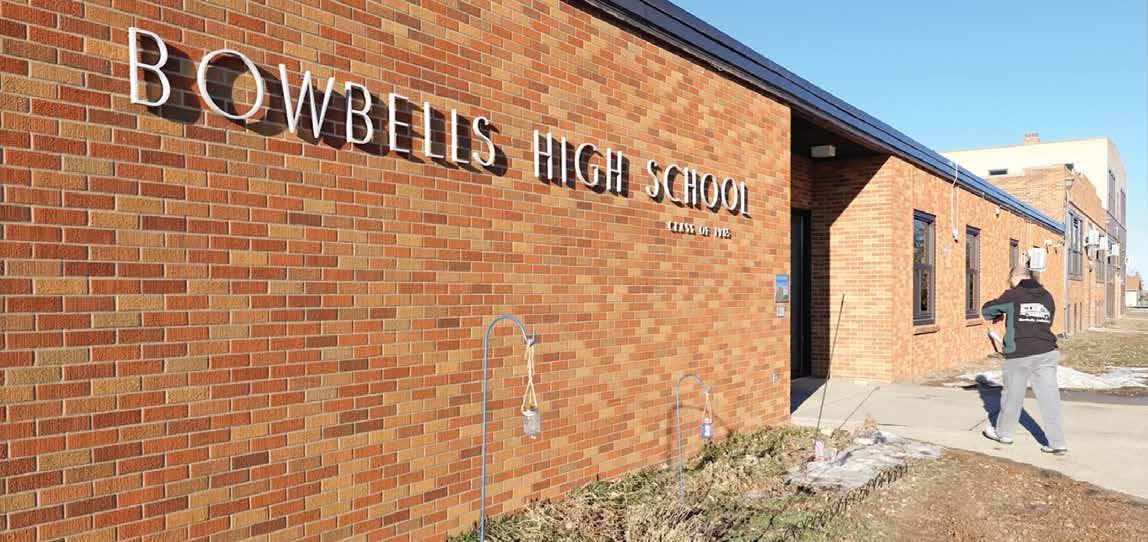
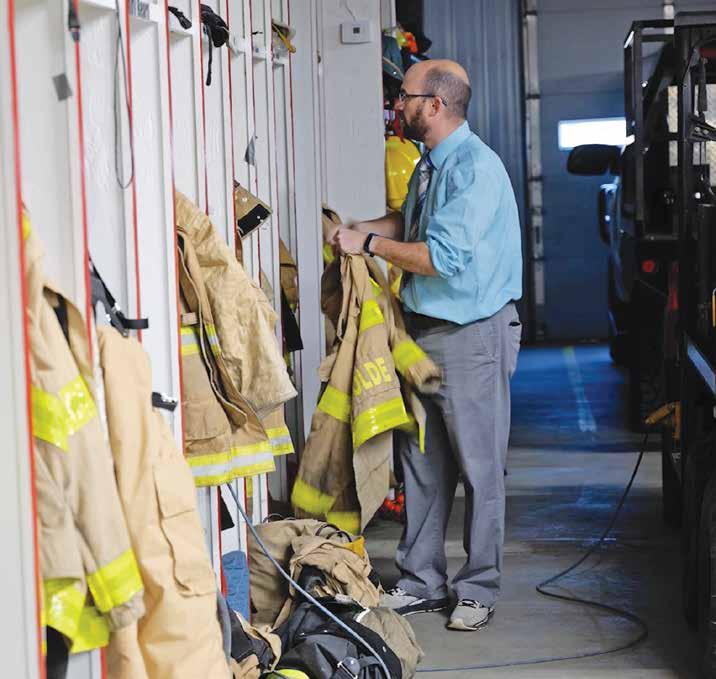
teachers found across North Dakota: a vital member of his community in a variety of ways. “If somebody’s having a heart attack, that’s life or death right there,” Golde said.
That over-involvement, practiced by teachers in small communities like Bowbells, has an outsized impact on one group especially: students.
“It’s just really nice to see that they care about the community, and you’re that community, so they care about you. And
Cyle Golde, a math instructor in Bowbells, is active within his community. He serves in multiple roles at Bowbells Public School, as well as with the town fire department and ambulance, and manages the public swimming pool.
just seeing them pour their hearts and their souls into other people just kind of … it’s really good role modeling,” Cambry said.
Cyle’s enthusiasm is borne out of a simple life philosophy: “I don’t know, I just see something, and I’m just like, ‘Oh, I could probably go help that person,’” he said.
An aspirational motto that influences students and keeps communities like Bowbells a great place to live.

On Saturday, April 20, 2024, this year’s North Dakota United Delegate Assembly will be held at the ND Gateway to Science in Bismarck. Every year’s Delegate Assembly is centrally important in charting the course for our union. This year will be no different, as our members are given the great opportunity and responsibility to share in the governance decisions of our statewide union of public employees and educators, elect members of our Board of Directors, and choose statewide delegates to the National Education Association (NEA) Representative Assembly (RA), to be held on July 3-7, 2024, in Philadelphia, Pa.
The NDU Delegate Assembly will convene at ND’s Gateway to Science, in the Innovation Room, on Saturday, April 20, at 8:30 a.m. At the Assembly, members will participate in the governance decisions of NDU, elect NDU Board members and delegates to the NEA Representative Assembly, reignite old friendships, create new friendships, and hear from national leaders on issues important to all ND United members.
Each local is guaranteed at least one representative. Larger locals are allowed one (1) per 50 members, see your count on the “delegates by local” attachment. Please complete and return the attached Delegate Report Form ASAP but no later than April 10. More information, including the agenda, will be sent when we receive your Delegate Report Form.
Another great social is being planned, so please attend! Come join your colleagues from around the state, relax and have fun! It will be held on Friday, April 19, at 7 p.m., in the Missouri Room at the Holiday Inn, 3903 State Street, Bismarck.
Hotel for Friday night, April 19, Holiday Inn, Bismarck
If you need hotel accommodations, please contact the Holiday Inn, 3903 State Street, Bismarck by booking online — to book, click on the QR code — (please make sure to change your stay dates to the dates within the block) — or by calling 701-751-8241
and ask for the front desk if prompted. Let them know you are in the ND United Delegates room block. Guarantee your room for late arrival with a credit card or the room will be released at 4 p.m. Room rates are $88.20 single or double (plus tax). Please contact the hotel before April 3 to qualify for these rates. After April 3, the room block will be released, and reservations will be honored on a first-come, first-served basis.
Scan this code to book your room at the Holiday Inn in Bismarck.

Recognizing the importance of participation at the state delegate assembly, NDU will provide the following expense assistance to locals or chapters (not individuals):
■ The IRS standard business mileage rate for one car per local
■ One half of the cost of a double room at the DA hotel for each delegate (if necessary)
■ $25 for each registered delegate
In addition, NDU will be responsible for breakfast and lunch on the day of the assembly. (Vouchers will be available at registration.)
Please contact lisa.bennett@ndunited. org or 701-223-0450. More information will be available at www.ndunited.org soon!
Each year, the North Dakota United Delegate Assembly features a wide variety of renowned guest speakers from across the state and nationally. Our 2024 Delegate Assembly has scheduled three guest speakers. Learn more about them from their bios below, and we thank them for taking the time to join us for this year’s event.
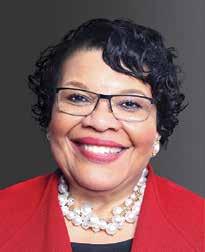
Princess R. Moss, an elementary school music teacher from Louisa County, Va., is Vice President of the National Education Association, the nation’s largest professional organization. Previously, Moss was NEA Secretary-Treasurer and had primary responsibility for managing and maintenance of the Association’s multimillion dollar budget.
At the local, state, and national levels, Princess is a respected, unwavering champion of children and public education. As Vice President, she helps to guide the Association’s mission of fulfilling the promise of public education to prepare every student to succeed in a diverse and interdependent world. For Princess, an important part of that work includes being a staunch, outspoken ally of students, educators, and families who represent communities that have been historically marginalized. These include Black, Brown and indigenous communities, LGBTQ+ communities, students with disabilities, and those who move through the world representing
the ways in which these communities intersect.
As the daughter of two school bus drivers who instilled within her the core beliefs of courage, honesty, respect, and the value of getting a good education, Princess earned her bachelor’s degree in music education from the University of Mary Washington, and received the university’s Distinguished Alumnus Award in 2006. She also earned a master’s degree in elementary and secondary administration and supervision from the University of Virginia.
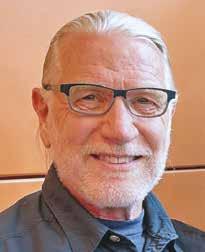
Larry C. Skogen is President Emeritus of Bismarck State College, an independent historian, and a retired member of the U.S. Air Force. He is the author of “Indian Depredation Claims, 1796–1920” and editor of “To Educate American Indians: Selected Writings from the National Educational Association’s Department of Indian Education, 1900–1904.
Skogen was hired as President of BSC in 2007. He was named Acting
Continued on next page.
Chancellor of the North Dakota University System in June 2013 and served as Interim Chancellor of the NDUS from November 1, 2013 until June 30, 2015, when he returned to BSC. Prior to 2007, he was academic dean and deputy superintendent for academic affairs at New Mexico Military Institute, Roswell, N.M. Dr. Skogen has taught history in collegiate and military settings and served as a squadron director of operations and wing inspector general at Francis E. Warren Air Force Base in Wyoming from 1998 to 2001 as well as other capacities for the U.S. Air Force. He’s a recognized authority and published author on federal Indian policy. He holds a B.S. in secondary education from Dickinson (N.D.) State University, an M.A. in history from University of Central Missouri, Warrensburg, Mo., and a Ph.D. in history from Arizona State University, Tempe, Ariz.
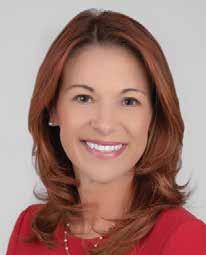
Kirsten Baesler is the state school superintendent and administrator of the North Dakota Department of Public Instruction. The superintendent and her 86-person team oversee the education of
public and nonpublic school students in more than 480 buildings across the state. She was first elected in November 2012. She was re-elected to her third fouryear term in November 2020.
Superintendent Baesler serves on more than a dozen boards, including the Education Standards and Practices Board, the North Dakota Children’s Cabinet, the K-12 Education Coordination Council, the Board for Career and Technical Education, and the Board of University and School Lands, which manages state landholdings and oversees a $6.033 billion trust fund (as of March 31, 2023) that benefits North Dakota’s public schools. She is chair of a state committee that screens candidates for the North Dakota Board of Higher Education.
Before taking office in January 2013, Superintendent Baesler had a 24-year career in the Bismarck Public School system– the state’s largest school district - as a vice principal, library media specialist, classroom teacher, and instructional assistant.
Superintendent Baesler also spent nine years as an elected member of the Mandan School Board, serving as the board’s president for seven of those nine years. She worked for a time as assistant director of the North Dakota School Boards Association.

Learn more about the candidates for our North Dakota United Board of Directors and delegates to the 2024 National Education Association (NEA) Representative Assembly, who will represent our members on the national stage.
In order to have their names placed on the ballot, each of these candidates needed to collect 50 signatures from active members of ND United in good standing, and to file for consideration as a candidate by Feb. 15, 2024. According to NDU Bylaws, nominations from the floor or write-in candidates may be accepted for all offices where no candidate has qualified. For more information on rules for NDU elections, visit the Governance & Policies page in the For Members section at our website, www.ndunited.org.
So that all our members can make an informed decision on who will serve in these important leadership roles, we are providing you with biographical information about each one. Biographical information is supplied to United Voices by each of the candidates, and this information has only been edited to match UV grammar and formatting style.
Less than 600 students

Angel Lindseth, a school counselor for the HopePage School District in eastern ND, is running for re-election as K-12 Teachers Director for schools with less than 600 students. Lindseth received her bachelor’s degree from VCSU in Elementary Education and Psychology and her master’s degree from the University of Mary in School Counseling, and currently she is working on her Educational Leadership doctoral degree. She and her husband live in Page, ND. Together, they have a blended family with six adult children and one grandchild. They enjoy going to sporting events, traveling, and relaxing at their lake home during the summer months.
More than 600 students
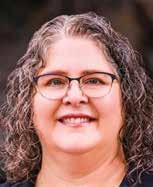
Michelle Strand, a science teacher at Fargo South High School, is a candidate for election as K-12 Teachers Director for schools with more than 600 students. She is a
member of the ND United GROW Team, and also serves on the Governance Committee and the At-Large Position for the Fargo Education Association Executive Board.
Strand was born in California as an “Air Force brat,” and said her family moved around a lot her first few years. She spent most of her K-12 years in the F-M area. She has taught in Minnesota, Nebraska, and North Dakota in both public and private high schools as well as community colleges. This is her 31st year of teaching science, and she is currently at Fargo South High School. Just a few years into her career, she discovered that teaching physics was her passion, and she became very involved in the Advanced Placement Physics program for College Board. She served as Exam Leader at the AP Physics reading for 10 years, was the co-chair of the AP Physics C Test Development Committee for six years, and has been conducting workshops for AP Physics teachers around the country and across the globe. Strand was a recipient of the Presidential Award for Excellence in Mathematics and Science Teaching for North Dakota in 2017, and she is a National Board Certified teacher for high school science. In 2022, she was
selected as one of 11 STEM teachers from across the country as an Albert Einstein Distinguished Educator Fellow. She says it was a great honor to be the first North Dakota teacher selected for this honor in the 33 years of the program (run by the Department of Energy). She has spent 11 months in a Congressional Office on Capitol Hill working on national education policy and STEM outreach.
Strand’s husband, Michael, is the Director of the School of Design, Architecture and Art, at NDSU. Both of her sons are students at NDSU. Her oldest, Malcolm, will graduate in May with a degree in political science, and his sights are set on law school. Ian, her youngest, is a vocal music education major.
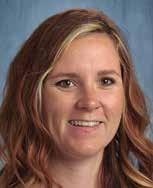
Jessica Van Winkle, a Special Education Teacher at Bismarck Public Schools, is a candidate for election to the NDU Board of Directors as K-12 Teachers Director for schools with more than 600 students. Van Winkle currently serves as an Advocacy Representative for the Bismarck Education Association, and was a member of the BEA 2023-24 negotiations team. She was born in Kansas City, Kan., and moved to Hebron when she was five as her mother was from there. Van Winkle grew up in the “Brick City” until the middle of her ninth-grade year and then moved to Bismarck due to being placed in foster care. She and her
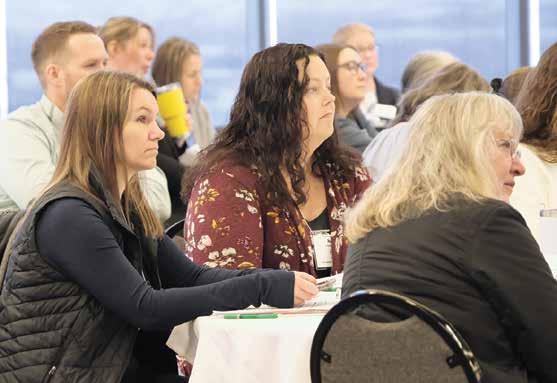
husband Tyler have two children. Huxley is a ninth-grader at a BPS high school, and Rennen is a third-grader at a little township school. She said, “We get the best of both worlds!” They are also foster parents to, so far, five special children who have come to their house and have been reunited with family or have aged out. Tyler is a line haul truck driver who sees the east side of the state every night. She said that they balance the day and night together, and “I’m lucky to have such a great partner in raising our children, other’s children, and educating children.”
On running for the Board, she said this: “I started being just a member at my local, then became building representative. In 2022, the president of our local asked me to be advocacy chair as I had recently gone through a horrible experience as an educator and almost quit. This gave me the opportunity to make sure our members voices were and are heard. This past summer, I went to my first National Representative Assembly and saw really for the first time what our members can do and how our voices can be raised.”
PUBLIC EMPLOYEES DIRECTOR
No candidates
HIGHER EDUCATION SUPPORT STAFF DIRECTOR
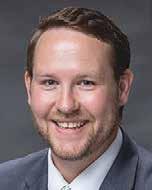
Aaron Flynn, a staff member at the University of North Dakota, is seeking re-election as Higher Education Support Staff Director on the NDU Board. Before his current work at UND, Aaron worked at the University of Mary in Bismarck. Aaron received a BA in Political Science and a MS in Educational Leadership from UND. Aaron has been a member of UND United, Local #6942, since 2018. Aaron is originally from West Fargo and currently lives in Grand Forks with his wife and three kids.
DIRECTOR – Two-year institutions
No candidates
DIRECTOR – Four-year institutions
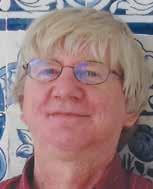
Dr. Ernst Pijning, a Professor of History at Minot State University, is running for re-election as the Four-Year Higher Education Director on the NDU Board. Born and raised in the Netherlands, Pijning moved to the United States in 1991, and came to teach at Minot State University in 1999. He learned to speak, read, and write in four foreign languages and visited 38 countries on five continents. He teaches history and international relations at Minot State University and has published about Brazil and Portugal. Ever since being in North Dakota, he has been very active in governance. Pijning has been the faculty advisor at the State Board of Higher Education, faculty senate president, President of the Council of College Faculties, and the Director of the Minot Area Council for International Visitors. During the winter, you can find him on the curling rink, and he said to also expect him to bring cookies, candies, chocolate, cheese and other snacks from abroad. His family all lives abroad, mostly in the Netherlands, but also in Canada and Switzerland.


Josh Standing Elk is seeking re-election as Ethnic Director for the NDU Board of Directors. Standing Elk teaches fourth grade at Moses Elementary in Bismarck. He graduated from United Tribes Technical College with a Bachelor of Science degree in Elementary Education in 2015. Josh has two beautiful daughters, Bella and Mya, who he says keep him busy when he’s not in the classroom. He joined the NDU Board of Directors as Ethnic Director in 2019.
PROFESSIONALS DIRECTOR
No candidates
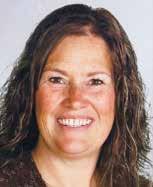
Darby Hart, an English/ Language Arts Instructor for grades 7-12 at Munich Public School, is running for re-election as the Northeast Region Director for the NDU Board. She previously taught in the Langdon area and Starkweather school systems. She has been active in local education associations throughout her 31 years of teaching, serving in roles of president, member advocate, and head negotiator. Hart received her bachelor’s degree in English Education from Minnesota State University-Moorhead. She is President of the Lake Region Teacher Center Board, has served on numerous state committees reviewing state assessments, curriculum content, and standards review. Hart lives in the rural Wales area with her husband, Brian. They have three grown children: Andria, a music educator; Austin, a Licensed Pharmacy Technician; Brandon, a fifth-generation farmer on the family farm.
“I am so thankful that North Dakota United (and previously NDEA) have been a part of my professional career
Continued on next page.
from the very beginning,” Hart said. “My active involvement early in the association helped me form the foundation of my teaching and to create lasting relationships with educators and education professionals throughout the state. North Dakota United strives to stay ahead of the issues facing educators today and continues to provide support and outstanding educational opportunities. Thank you for the opportunity to continue to serve on the Board of Directors.”
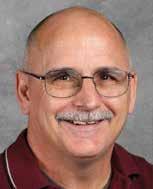
Bruce Schonberger, a Custodian for Minot Public Schools, is seeking election as Northwest Region Director for the NDU Board of Directors. He serves as the Financial Secretary for North Dakota Public Employees (NDPE) Chapter #52 and as Vice President of the Northern Chapter Missouri Slope Central Labor Council. Schonberger was born in Fargo, and he moved to Minot when he was five years old. He attended Minot Public Schools and graduated in 1981. His wife, Donna, is retired and babysits their grandchildren. They have two married daughters and three grandchildren, ages three, two and six months. Schonberger has worked for Minot Public Schools for 15 years. He has been the Financial Secretary for our local chapter for 11 years. He is on the Minot Public School Safety Committee,

and he attends the Minot Education Association Building Representative meetings. He is also one of the contract negotiators for Chapter 52. He has been the Vice President of the Northern Chapter of the Missouri Slope Central Labor Council for many years, and was the North Dakota 2023 Education Support Professional of the Year.
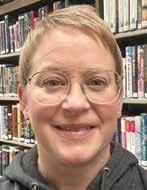
Sarah Lerud, the Grades 7-12 Librarian at Valley City Junior and Senior High School, is running for re-election as Southeast Region Director for the NDU Board. This year marks 24 years in education for Lerud. She said she absolutely loves her job, working with technology, connecting readers to books, and solving problems every day. She serves as the Valley City Education Association President and has negotiated for every contract in VC since she started besides the one right after having her son, who is now 15.
She was born in Valley City and graduated with a double major in English and Art Education from Valley City State University (VCSU). She taught in Kindred and Wishek before moving back home to VC. While working in Wishek, her true calling found her – to be a librarian. She completed her library minor from VCSU and earned her Master’s in Library Science from the University of North Texas. She is married to Mike, has one human son, Jack, and two schnauzer sons, Miko and Harry.

Alexis Rasset, a high school Special Education Teacher in Mandan, is seeking re-election as Southwest Region Director for the NDU Board of Directors. She has been an educator since 2016. Prior to her educator role, she was a Special
Education Support Professional for three and a half years. She is happily married to her husband Jon, and together they have two sons, Jacob (15), and Chandler (25), his wife Kaitlyn (23), along with their two dogs, Cooper and Odin.
Rasset is active in her local union with the start of her fourth year as a building rep, fifth year on the hospitality committee, along with her first year as President-Elect. Not only is she active at the local level, she is also active at the state level, attending six NDU Delegate Assemblies, lobbying at the Capitol, joining a special education collective, and serving on the NDU Board of Directors as the Southwest Region Director for the last three years. She is also a union participant at the national level, including five NEA Representative Assemblies, AFT TEACH, and NEA Leadership Conference.

Dawn Hintz, a math teacher at Bismarck High School, is a candidate for delegate to represent North Dakota United at the 2024 NEA Representative Assembly in Philadelphia, Penn., this summer. Hintz serves as a building rep at BHS,
an alternate to the Bismarck Education Association’s resolutions committee, and has previously attended NEA Ras in Chicago, Ill., and Orlando, Fla. Originally from Minot, Hintz is a third-generation educator. All of her family’s educators attended Minot State University. She just applied for her ND lifetime teaching certificate. She is married to Dave, who works as a medical equipment field technician. Their daughter, Amanda, works in Fargo and graduated from North Dakota State University with a degree in Ag Business. Their son, Cameron, will graduate from Bismarck State College with a degree in Cyber Security.
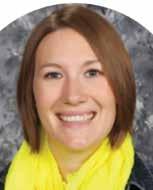
Monica Klein, a Kindergarten Instructor for Mandan Public Schools, is also a candidate for North Dakota United delegate to the 2024 NEA RA in Philadelphia. Klein currently serves as the Mandan Education Association President and as a Building Rep. Additionally, she is active on the NDU GROW Team. She was born in Terre Haute, Ind., and raised in St. Michael – Albertville, Minn. She and her husband Bryce moved to Bismarck about 10 years ago as Bryce started his career in law enforcement. They have two children, Rowen (eight) and Carlee (two).
Delegate Assembly
Saturday, April 20, 2024
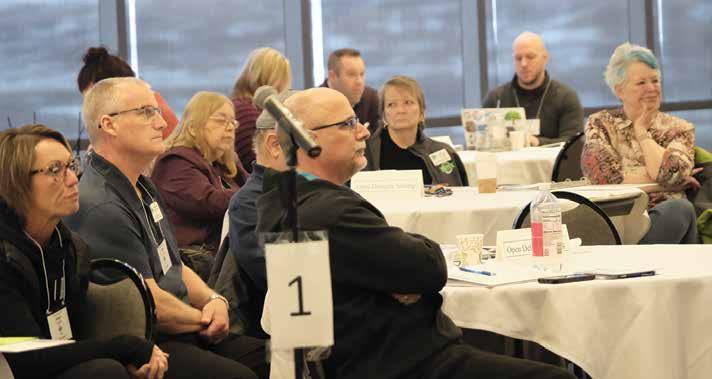

As we begin the 2024 tax season, I wanted to remind our members of some opportunities available to them as property owners and provide an update on the petition to eliminate property taxes in North Dakota.
During the 2023 legislative session, in an effort to ease the burden on property owners in the state, legislators passed the Primary Residence Credit. The credit provides all North Dakota homeowners with the option to apply for a state property tax credit through the North Dakota Office of State Tax Commissioner.
Homeowners with an approved application may receive up to a $500 credit against their 2024 property tax obligation. To be eligible for the credit, you must own a home (house, mobile home, town home, duplex, or condominium) in North Dakota,
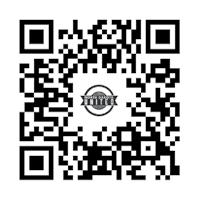
and reside in it as your primary residence.
There are no age restrictions or income limitations for this credit. The deadline to apply is March 31, and the application can be found by scanning the QR code below.
We encourage all our members who own a primary residence to apply.
Next up is something that has the potential to impact every ND United member, and not in a good way. Currently, there is a petition being circulated to eliminate property taxes in North Dakota. While we understand many in the state are upset about the increases in property taxes, demolishing the entire system without a clear plan to replace the lost revenue property taxes generate is not the answer. The adage, “if something sounds too good to be true, it probably is,” is appropriate to describe the initiated ballot measure
Scan this code to apply for Primary Residence Credit before March 31, 2024.
abolishing property taxes. While no one enjoys paying them, taxes, especially property taxes, are crucial to the growth of North Dakota.
The property taxes you pay are critical to the development of your community as they fund the public services available to you as a resident. If this measure passes, North Dakota would have to pay approximately $1.329 billion more per year to make up for lost property taxes that provide vital public services, including schools, police and fire protection, snow removal, libraries, etc.
Proponents of the measure claim that we can continue to have great public services, a few of which are listed above, while simply not having to pay property taxes. They often claim that we can use the Legacy Fund (current balance around $9 billion) and eliminate pork and waste. The specifics on these funding sources are limited and come painfully short of making up the shortfall.
The biggest concern is that the measure would take away local control of local budgets. Instead of local county and city officials listening to the concerns of their constituents and ensuring that their annual budgets meet the needs of the community, all school districts, counties, cities, and other political subdivisions
will be forced to go to Bismarck to beg the legislature to fund a new school, or additional firefighters, or improved sewer systems, or enhanced police protection, or roads. In essence, the state Legislature would become your new school board, city council/commission, park board, county commission, and township board. And the new boss will be nothing like the old boss because the new boss does not live in the communities affected by their decisions.
Local control is a principle that most North Dakotans cherish. The passage of this ill-conceived Constitutional measure will end local control. The petition is still gathering the requisite number of signatures to appear on the November ballot. We encourage all of you to NOT sign this petition, and to discuss the severe ramifications to our communities if it were to pass. There is still time to keep this off the ballot, and that requires everyone understanding what it could mean for our state. While a similar measure was defeated in 2012 by a large margin, early polling indicates the vote will be much, much closer this time if it gets on the ballot.
Thank you for all you do and will do to ensure that North Dakota remains the best place to raise our families and earn our livings.

IT’S 2024! When I look back on my teaching career, I am reminded that I did my student teaching in 1974, 50 YEARS AGO, with my first year of teaching in 1975! Unfortunately, it seems many of the same problems of 50 years ago are still prevalent now: the retention of teachers.
The National Commission on Teaching and America's Future recently reported that "the traditional sink-or-swim induction contributes to high attrition and to lower levels of teacher effectiveness." Studies also indicate that teacher expertise is the most important factor in student achievement. If, as the National Commission proclaims, "competent teaching is a new student right," then we as a nation must find ways to fulfill the promise as we face the challenge of retaining teachers. We must find ways to make good teachers - and many of them.
Skillful mentorship is the answer. I believe we should use retired master teachers who have the credentials, the personality, the interest, the expertise, the commitment, and the energy to mentor our early educators. With Americans living longer and healthier lives, often seeking to remain creative, productive, and valued, the seniors of the twentyfirst century can be the most influential generation in history. It is a win-win situation when a
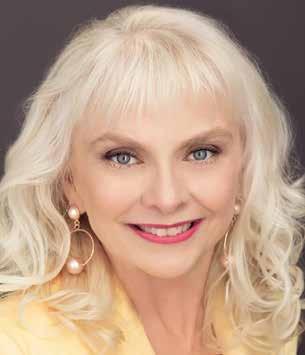
society invites and welcomes its seniors to be engaged in the growth and development of its junior members, and nowhere might this be more vital and doable than in our schools. The novices gain invaluable advice and services; the retirees serving as mentors gain self-esteem and an opportunity to “think grandly about what it takes to educate a teacher.” As mentors, they will make a significant impact on the next generation of teachers, and through their success, on the next generation of students as well. Every school system should have in place a new teacher induction program that contains a mentoring component utilizing the expertise of our retired teachers. Every beginning teacher should have the opportunity to become the protege of a skilled and qualified mentor, ideally for the first three years of their career. Retired master teachers should be recruited to serve as mentors to augment the supply of qualified, available mentors for new teachers. It is with great hope that our school systems will catch on to this concept.
I will leave you with one last thought from Denzel Washington: “Show me a successful individual, and I’ll show you someone who had real positive influences in his or her life. I don’t care what you do for a living -if you do it well I’m sure there was someone cheering you on or showing the way. A MENTOR.”
 By Kelly Hagen, kelly.hagen@ndunited.org
By Kelly Hagen, kelly.hagen@ndunited.org
In 2013, when the members of the North Dakota Education Association and North Dakota Public Employees Association elected to merge and form North Dakota United, they created a rather unique situation. Our union is one of only two state education associations in our nation – the other being the Montana Federation of Public Employees – that includes membership categories in K-12 teachers and education support professionals; higher education faculty and staff; state, county, and city government employees; aspiring educators; and retired public educators and employees. With so many potential voices from across the sphere of public workers and educators, how can we potentially bring all of these people and perspectives together in one place?
Well, offer them pizza. Of course.
“We were at the GROW team meeting that was held this summer,” said Amber Haskell, government relations chair for Grand Forks Education Association, which is made up of K-12 teachers and education support professionals. “And as we were talking, we realized we’re all members of North Dakota United, but we haven’t really had the chance to come together. … Some of our members didn’t even know there were other locals of North Dakota United in Grand Forks, so we
decided to bring together Grand Forks Education Association, UND United, the students and our public employees with NDU.”
Haskell coordinated with Daphne Pederson and Liz Legerski, who are both members of UND United, the local association of University of North Dakota faculty and staff, about possibly doing a “Unity Event” in Grand Forks sometime. Plans came together, and an event was held at Up North Pizza & Pub on Nov. 28, 2023.
“I’ve been lucky to participate in some activities at ND United with the GROW team and other activities,” Liz Legerski, associate professor of sociology at the University of North Dakota and vice president of UND United, said. “And I always really enjoy getting to meet my K-12 colleagues from around the state. We’ve been talking for a long time about how we feel we could work together more and help support each other more, because we are all one union, even though we’re in different areas of our careers. And so I was really excited when this came up and when Amber and Daphne decided that we should have something, I was like, ‘Yeah, let’s do it.’ I really think it was a great opportunity.”

All NDU professional development courses are FREE to North Dakota United members through July 31, 2024.
Participants are responsible for the cost of the book and the $50 credit fee to UND to have your credit recorded onto your transcript. The fee to participate in an NDU professional development course for non-members is $100, plus the cost of the book and the credit fee to UND.
Book Studies – Spring 2024:
Book studies are typically one credit courses that last approximately six weeks. One credit equates to 15 hours of study. Expectations include reading the book, answering discussion questions, responding to others’ responses, and a reflection paper/action plan.
Anxiety
> Rewire Your Anxious Brain: How to Use Neuroscience of Fear to End Anxiety, Panic, and Worry – April 1
Behavior
> Beyond Behavior: Using Brain Science and Compassion to Understand and Solve Children’s Behavioral Challenges – June 3
Classroom Management
> Causes and Cures in the Classroom: Getting to the Root of Academic and Behavior Problems – April 29
> Frustration Busters: Unpacking and Responding to Classroom Management Challenges –July 22
Diversity
> A New Kind of Diversity: Making the Different Generations on Your Team a Competitive Advantage –April 22 Engagement/Poverty
> Engaging Students with Poverty in Mind: Practical Strategies for Raising Achievement – June 3 Equity
> We Got This: Equity, Access, and Quest to Be Who Our Students Need Us to Be – July 1
Innovation
> Wild Card: 7 Steps to an Educator’s Creative Breakthrough – April 8
To register please visit: courses.ndunited.org.
Instruction/Strategies
> The Courage to Learn Differently: Life Stories, Effective Practice, Breakthrough Activities –May 6
> Shifting the Balance: 6 Ways to Bring the Science of Reading into the Balance Literary Classroom – June 10
Leadership
> Lead with Instructional Rounds: Creating a Culture of Professional Learning – May 6
SEL
> The Flexible SEL Classroom: Practical Ways to Build Social Emotional Learning – May 13
Self-Care/Mindset
> Awakened: Change Your Mindset to Transform Your Teaching – April 15
> Upstream: The Quest to Solve Problems Before They Happen – June 24
> Work Less, Teach More: How to Be an Effective Teacher and Live a Life You Love – July 1
> The End of Average: Unlocking Our Potential by Embracing What Makes Us Different –July 15
Social Justice
> The Four Pivots: Reimagining Justice, Reimagining Ourselves – July 8
Student Success
> Punished by Rewards: The Trouble with Gold Stars, Incentive Plans, A’s, Praise, and Other Bribes – April 1
> Why Don’t Students Like School? A Cognitive Scientist Answers Questions About How the Mind Works and What It Means for the Classroom –April 8
> Mind in the Making: The Seven Essential Life Skills Every Child Needs – July 8
Trauma/Addiction
> Childhood Disrupted: How Your Biography Becomes Your Biology, and How You Can Heal – June 17
Early Career Educator Cohort - June 2024:
North Dakota United is continuing to sponsor early career educator cohorts, with one beginning in June 2024. The cohort will last approximately fourteen months and will include 30 early career educators (service years 1-7). The educators will complete six courses for six credits that can be used for re-licensure and lane changes, at no cost to the educators. That’s right – FREE!
The six book studies/courses in the Early Career Educator Cohorts are: Poor Students, Rich Teaching: Seven High-Impact Mindsets for Students from Poverty; Hacking School Discipline; Classroom Management Matters; Educator Ethics; Differently Wired; and Troublemakers.
North Dakota United is currently accepting educators for the June 2024 cohort. If you are interested, please contact Professional Development Director Amy Flicek at amy.flicek@ndunited.org.
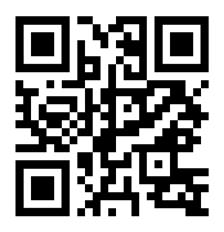

Reduce student debt
Save on travel and everyday items
Get insurance that fits your schedule
Sign up for free life insurance
Plan ahead for retirement And so much more! Scan below to learn more





